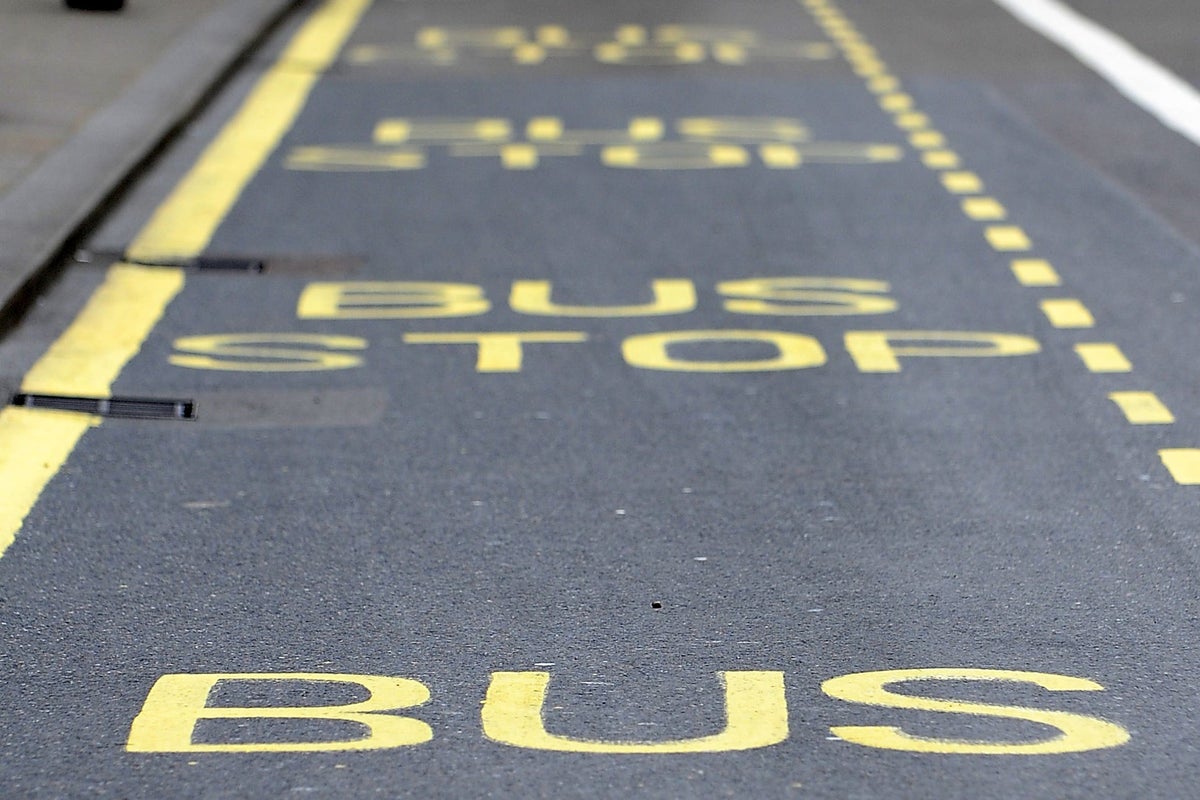
The number of local bus routes in England has halved since 2011, according to new research.
Labour said there were 8,781 routes in operation during the year to the end of March, compared with 17,394 in 2010/11.
The Department for Transport (DfT) described the analysis as “misleading”.
The research, based on figures published in annual reports by Traffic Commissioners, stated that more than 2,000 routes have been cut since 2021/22 alone.
The West Midlands has been the hardest-hit region for lost bus routes since 2011 – with more than two-thirds cut, Labour said.
Millions of people rely on these essential services, but they are being left without a voice as routes are cut back year after year— Louise Haigh, shadow transport secretary
Louise Haigh, Labour’s shadow transport secretary, said: “The staggering decline in local bus services under this Government is nothing short of vandalism against our communities.
“Millions of people rely on these essential services, but they are being left without a voice as routes are cut back year after year.
“Labour’s plans will put passengers first by allowing communities to take back control over their bus services.”
In response, a DfT spokesperson said: “It’s misleading to equate these figures directly with changes in the number of bus routes, when the Government has invested £3.5 billion since 2020 to back our buses.
“Our recent £500 million boost is capping fares until the end of November 2024 and protecting routes into 2025, helping people save money on travel and improving transport connections to grow the economy.”
The DfT added that a number of factors have led to the reductions stated by Labour, such as operators merging routes and Traffic Commissioners no longer managing the registration process for some areas.
Transport minister Richard Holden said: “This is just another cynical attempt by Labour to distract the British people from their appalling record on public transport.
“In Labour-run London, Sadiq Khan has increased bus fares by almost 6% and under the last Labour government bus fares rose more quickly than under the Conservatives, increasing costs for hardworking families.
“While Labour’s fare hikes are discouraging bus use, the Conservatives are backing bus users by capping fares at £2 on over 5,000 bus routes and delivering record investment into our bus sector, keeping prices down as we halve inflation and grow the economy.”
Labour has pledged to give all local transport authorities more powers to choose routes and reduce fares.
These are currently only available to metro mayors.
Labour also wants to lift the ban on publicly-owned bus companies being created.
In May, the DfT announced it will provide £300 million of funding towards the protection of bus services until 2025.
Bus operators are facing challenging economic conditions with industry costs up by 17% over the last year, according to CPT research— Graham Vidler, Confederation of Passenger Transport
Graham Vidler, chief executive of the Confederation of Passenger Transport (CPT), a trade association representing the bus and coach sector, said: “Bus remains the nation’s most popular type of public transport and passenger numbers are increasing year-on-year by over 10%.
“But bus operators are facing challenging economic conditions with industry costs up by 17% over the last year, according to CPT research.
“Against this backdrop, we have been clear the 21-month bus funding settlement from Government is not sufficient to save every service.
“Operators and local authorities continue to work closely together to run buses where people want to go and to minimise the impact of any service changes.”
Alice Ridley, of pressure group Campaign for Better Transport, said: “Buses keep people and communities connected and are crucial to the economy.
“To prevent further cuts and grow the network back to the level needed, the Government must change the way buses are funded and replace the multiple and competitive funding sources with a single, long-term funding pot.”







